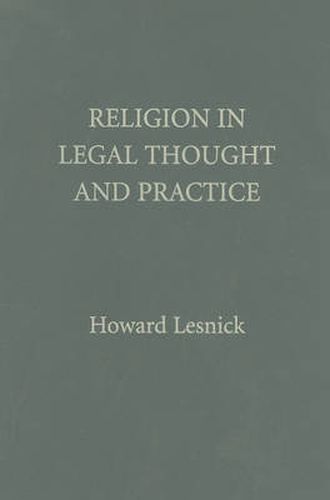Readings Newsletter
Become a Readings Member to make your shopping experience even easier.
Sign in or sign up for free!
You’re not far away from qualifying for FREE standard shipping within Australia
You’ve qualified for FREE standard shipping within Australia
The cart is loading…






This book examines moral issues in public and private life from a religious but not devotional perspective. Rather than seeking to prove that one belief system or moral stance is right, it undertakes to help readers more fully understand the effect of religious beliefs and practices on ways of conceiving and addressing moral questions, without having to accept or to reject any specific religious outlook. It shows how the similarities between religions and the differences within any one religion are more important than the reverse. The book asks * Where do moral imperatives come from, and how do the answers found in religion and law interact? * How does the fact that a moral norm is grounded in religion affect our thinking about it? * What is the significance of the differences (and similarities) between religious and secular sources of moral norms?
$9.00 standard shipping within Australia
FREE standard shipping within Australia for orders over $100.00
Express & International shipping calculated at checkout
This book examines moral issues in public and private life from a religious but not devotional perspective. Rather than seeking to prove that one belief system or moral stance is right, it undertakes to help readers more fully understand the effect of religious beliefs and practices on ways of conceiving and addressing moral questions, without having to accept or to reject any specific religious outlook. It shows how the similarities between religions and the differences within any one religion are more important than the reverse. The book asks * Where do moral imperatives come from, and how do the answers found in religion and law interact? * How does the fact that a moral norm is grounded in religion affect our thinking about it? * What is the significance of the differences (and similarities) between religious and secular sources of moral norms?